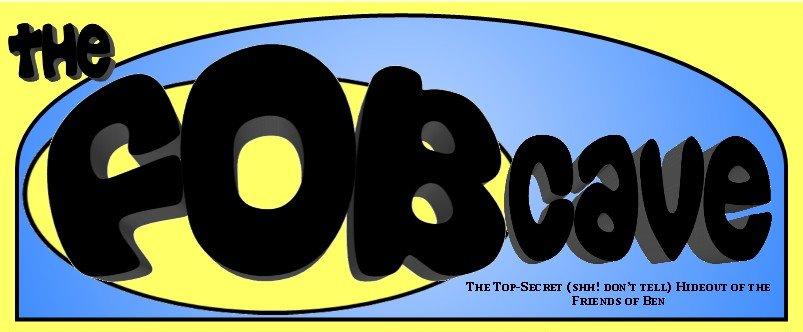In the first part of this post I talked about how personal financial problems and the War on Gay Marriage had me feeling hopeless and how, although unrelated and kind of random, a mixtape made by various hip-hop artists in support of Barack Obama gave me something to hope for. I noted how, in contrast to the current president who seeks to inspire fear in Americans, Obama inspires hope.
In a recent post I accused Mormons who follow their prophet's call to arms, despite their own consciences telling them this is wrong, of being at best selfish and at worst cowardly. My friend Theric commented that my accusation "tends to suggest that you equate faith with fear, when, really, they are opposites." He's right. Fear is antithetical to faith. I agree with this assessment so much, in fact, that not so long ago, when I was a man of faith, I named my son based on that very idea (and I say I named my son because FoxyJ wanted another name and I only won in the end because she was too drugged after the emergency c-section to care).
One thing that bothers me so much about the Proposition 8 campaign, and particularly because it is religious people who are behind it, is that it is not based in faith, but in fear. I'm speaking now not about those who recognize that discrimination is wrong and are considering voting for it anyway because their prophet told them to, but of the people who wholeheartedly support this discrimination. The way the Yes on 8 campaign has spun the argument, it is not the rights of gay couples that are in danger, but rather the rights of churches and religious parents. They cite inaccurate and irrelevant legal precedent to paint a picture wherein same-sex marriage equals kindergarteners being taught about gay sex and temples being forced to marry gay couples or shut down.
The problem with this reasoning--well, one of the problems because there are many--is that it has nothing to do with same-sex marriage. None of these horrible things Prop 8 supporters fear are direct consequences of gay people getting legally married. They are things these people fear will happen if gay Californians can legally marry. They're afraid of losing their rights to practice their own religion and to raise their children according to their own values. And so what do they do? They take away someone else's rights in order to protect themselves. That's not an action based on faith. That's all fear.
A faith-based response to concerns about a supposed threat to religious rights would, first of all, show faith in humanity. Although Gordon Hinckley, the former president of the LDS Church, said many disparaging things about homosexuality, he was not one to look at the world around him and see conniving liberals out to corrupt him and his family with their devious gay agenda. When members of the church expected him to stand up in General Conference and bemoan the decaying state of the world, instead he spoke of acts of kindness he saw everywhere. He reached out on several occasions to people of other faiths and to people of no faith in attempts to work together for the betterment of the world. I don't mean to compare Hinckley with current LDS president Thomas Monson because Monson may well take this same approach in other contexts and Hinckley may well have done the same as Monson in this context (in fact he did, but I don't think quite to this extent), but Proposition 8 is not based in this same optimistic view of the world. Whereas an optimistic, faith-based worldview would have sought ways to work together with the gay community to ensure that everyone's rights are protected, the pessimistic, fear-based worldview represented by Prop 8 instead turns lesbians and gay men into enemies of religion. Do not unto others what you would have them do unto you, Prop 8 says, but rather do unto others what you fear they'll do to you. Don't turn the other cheek; rather, get them before they get you.
I'm no longer a person of faith, so I need to find another antidote to the fears I have, the chief of which lately is the fear of living in a world with people who are willing to abandon reason and justice in the name of a fear they erroneously call faith. For me hope fills that space once taken by faith. Hope not for things which are unseen, but hope based in the things I do see. Hope, for instance, that comes from taking a look at the progress we've made on the road to equality in just the past twenty years. I have hope that California voters will speak out on Tuesday against discrimination, but I ground that hope in a recognition of the reality that many have been convinced by the scare tactics of the Yes on 8 campaign. And like my believing friends, I recognize that "[hope] without works is dead." Which is why I've talked so much about Prop 8 on this blog, in the hope that I'll convince someone, anyone, that voting no on 8 is the right thing to do; this is why I've donated the very little I can afford to the No campaign; this is why I'll be standing outside a polling place on Tuesday, reminding voters that a No on 8 is a vote for equality. If all this and the much greater work of thousands of others fails and the proposition passes, I'll grieve with the people who suffer from this discrimination and then I'll hope with them for the inevitable tomorrow when we'll be past all this. This hope I have in humanity, even the parts of humanity who currently oppose same-sex marriage, is not based in naive optimism but in historical evidence: the human race has always moved forward; we may experience setbacks along the way, but as we continue to embrace reason we leave behind us the irrational fears of the past.
Hope is my anti-fear. Here's hoping that better tomorrow comes sooner rather than later.
Subscribe to:
Post Comments (Atom)





10 comments:
Reading this was what I needed today. Thank you Ben.
You're welcome.
And here's something much better stated that I just discovered serendipitously.
Ramen.
Very well written. Interesting, though, how two people can look at the same thing (this is just one example, of course) and sincerely see it differently. Maybe it's because they assign (interpret) different motives to (whatever) the behavior. Maybe it was planned to be that way - to test our good intentions to be loving and tolerant. I think a lot of things in this world are like the 5 blind men, describing an elephant - each with a different opinion, depending on where he was standing. Their different opinions didn't change the truth of what the elephant looked like, and there was some truth in what each of them said.
I'm sincerely sorry that you see this in a way that is so upsetting to you. But good for you - hang on to your hopeful attitude!
Craig: Chicken, beef, or shrimp?
TK: What's sad to me is that so many people, rather than acknowledge that they don't see the whole elephant, cling so strongly to the belief that their portion of truth is The Whole Truth, to the point that they are willing to hurt others in the name of that truth.
This is really nicely stated. The argument that really befuddles me (seriously - explain this to me because I'm not seeing it) is this one: keeping gay marriage legal takes away the rights of conservatives because, if gay marriage is legal, then everyone thinks conservatives are bigots and this silences the conservative voice. But making gay marriage illegal preserves the right of conservatives to have their opinions, and everyone can have an open dialogue about it.
Nope - I am NOT KIDDING. And this is from a normally intelligent guy.
You know, just because you no longer have faith in religion doesn't mean you aren't a person of faith. I mean, maybe you aren't, and that's fine. However, when people tell me I don't believe in anything, and I am no longer a person of faith, I tell them that I believe in, and have faith in love, justice, compassion, mercy, equality, and hundreds of other things.
hope. For you on your birthday.
Rebecca: You make a good point about faith. I will tolerate your different definition of faith, and by "tolerate" I mean that come next election I'll be voting to take away your right to have that definition.
Skye: Thanks!
Oh, and do you believe in life after love? Cher does.
Post a Comment